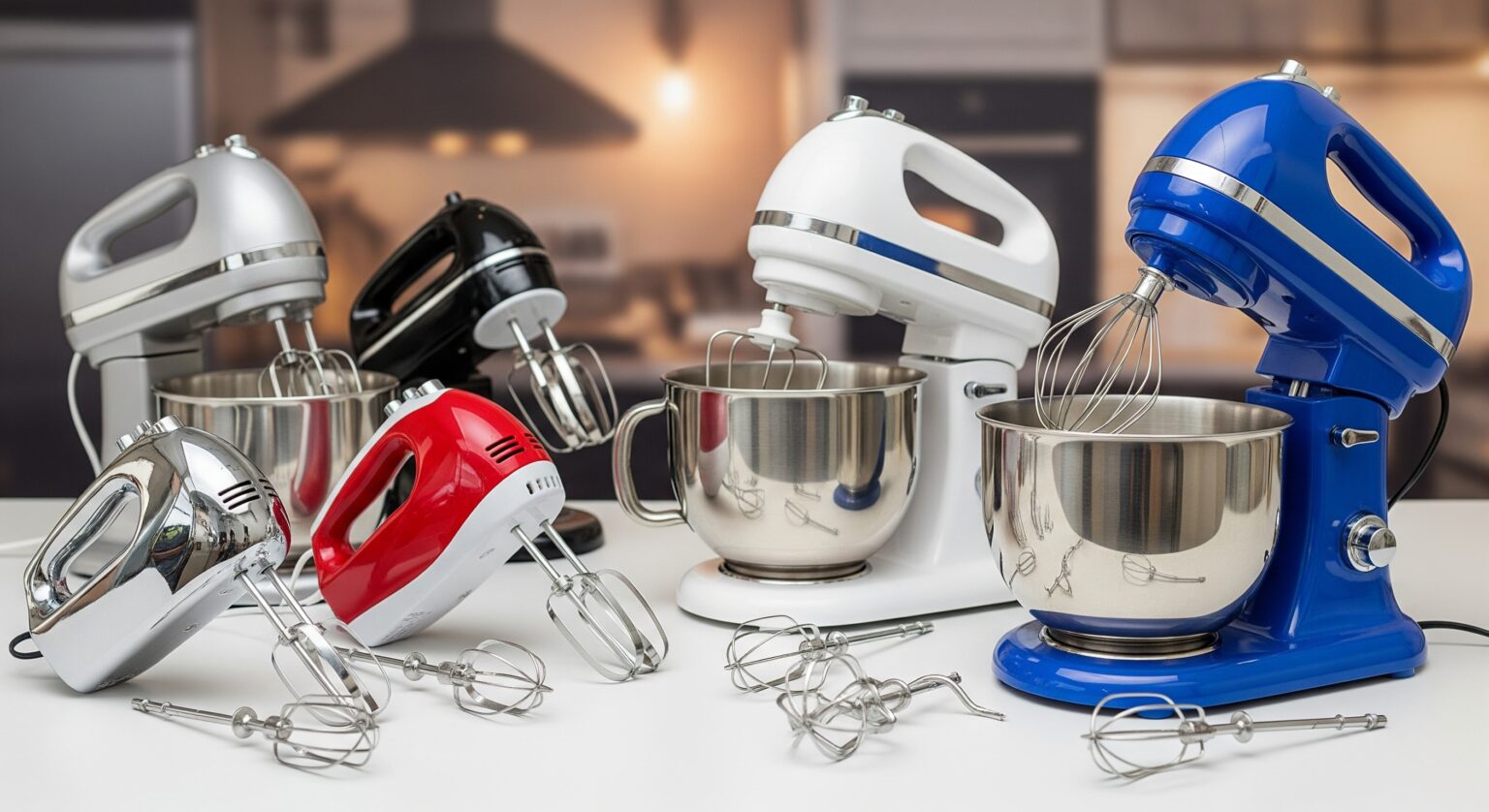Safety of Household, Commercial and Similar Electrical Appliances
Electric Egg Beaters
Strategic Recommendations for Electric Egg Beaters
- Start BIS Certification Process Now
Early application ensures priority testing slots and smooth certification before the compliance deadline.
- Partner with Compliance Experts
ERA’s BIS consulting team will assist with Scheme-I licensing, documentation, and labeling procedures.
- 📞 Contact ERA Support Team
📧 cs@eraglobal.co.in | 📞 +91 9599296331 | 💬 WhatsApp
Get dedicated support for audit preparation, Schedule A declarations, and post-certification marking.
- Track Notifications & Circulars
Subscribe to the ERA Newsletter to receive updates on BIS enforcement dates, QCO changes, and relevant appliance circulars.
- Ensure Marking Before Sale
All electric egg beaters must carry a visible and valid ISI mark on the device and its packaging prior to sale or distribution in the Indian market.

| Section | Details |
|---|---|
| Product Name | Electric Egg Beaters |
| Applicable Indian Standard (IS) No. | IS 302 (Part 1):2024 |
| Title of Indian Standard | Household and Similar Electrical Appliances – Safety – Part 1: General Requirements |
| Quality Control Order | Safety of Household, Commercial and Similar Electrical Appliances (Quality Control) Order, 2025 |
| Notification & Amendments | Notified via S.O. 2232(E), dated 19 May 2025 Supersedes QCO 2024: S.O. 4098(E), dated 17 Sept 2024 |
| Final Enforcement Date | Large & Medium Enterprises: 19 March 2026 Small Enterprises: 19 June 2026 Micro Enterprises: 19 September 2026 |
| Objective & Scope | To ensure safe electrical operation, quality performance, and structural durability in egg beaters through mandatory BIS certification. |
| Products Covered | Electric egg beaters and whisks for home or small-scale commercial use, operating at ≤250V AC or ≤480V DC. |
| Exemptions | - Export-only models - R&D imports (≤200 units/year) - Pre-certified or declared stock (Schedule A) can be sold within 6 months |
| Industries Impacted | Kitchen Appliance Manufacturers, Baking & Confectionery Equipment Suppliers, Consumer Goods Retailers, Food Service Businesses |
| Mandatory Compliance | - Must conform to IS 302 (Part 1):2024 - BIS certification under Scheme-I is mandatory - ISI mark required on product and packaging |
| Next Steps for Stakeholders | Apply for BIS certification, conduct BIS-approved lab testing, affix ISI mark, and declare Schedule A stock |
| Legal Framework Provision & Enforcement | Enforced by BIS under the BIS Act, 2016 with full regulatory and enforcement powers |
| Penalties | Non-compliance may result in seizure of stock, license suspension, fines, or imprisonment up to 2 years, or both |
| Conclusion | From 19 March 2026, electric egg beaters must comply with IS 302 (Part 1):2024 and carry BIS certification. Early action is essential to maintain market access and avoid penalties. |
| References/Annexures | - QCO 2025: S.O. 2232(E) [19 May 2025] - Superseded QCO 2024: S.O. 4098(E) [17 Sept 2024] |
Ready to start your certification journey?
Let us help you navigate regulatory challenges and achieve certification with ease. Leave us your details, and we’ll get back to you—or request a free consultation today.
Get in touch with us today
Notification
Electric Egg Beaters are now regulated under the Safety of Household, Commercial and Similar Electrical Appliances (Quality Control) Order, 2025, notified via S.O. 2232(E) dated 19 May 2025, under the BIS Act, 2016. This QCO replaces the earlier order notified through S.O. 4098(E) in September 2024.
Overview
Electric egg beaters are small motorized appliances used for mixing, whipping, and aerating food ingredients. Their widespread use in home kitchens and bakeries necessitates uniform electrical safety and product quality standards under IS 302 (Part 1):2024.
Objective & Scope
The QCO ensures that electric egg beaters meet electrical insulation, protection against moisture, structural strength, overheat safety, and shock prevention standards as specified in IS 302 (Part 1):2024.
Products Covered
- Electric hand mixers with beater attachments
- Stand-type egg beaters used in home or light commercial kitchens
- Operating voltage up to 250V AC or 480V DC
Exemptions Provided
- Units meant exclusively for export
- R&D imports up to 200 units/year
- Schedule A stock (non-marked, pre-manufactured) may be sold within 6 months if declared
Industries Impacted
- Appliance OEMs and brands (home & semi-commercial)
- Bakery equipment suppliers
- Institutional kitchen contractors
- Online and offline home appliance retailers
Mandatory Compliance Requirements
All egg beaters must:
- Be certified under Scheme-I of BIS
- Comply with IS 302 (Part 1):2024
- Bear a valid ISI mark on both the appliance and packaging
Enforcement Timeline
- Large & Medium Enterprises: 19 March 2026
- Small Enterprises: 19 June 2026
- Micro Enterprises: 19 September 2026
Next Steps for Stakeholders
- File BIS license application under Scheme-I
- Conduct product testing through BIS-recognized labs
- Affix ISI mark before market launch
- Declare existing stock under Schedule A for compliant clearance
Legal Provisions, Enforcement & Penalties
This QCO is enforced by BIS under the BIS Act, 2016.
Non-compliance may result in:
- Seizure of non-marked or uncertified units
- Suspension or cancellation of license
- Fines and/or imprisonment up to 2 years, or both
Conclusion
Starting 19 March 2026, all electric egg beaters sold or imported into India must be BIS-certified, conform to IS 302 (Part 1):2024, and carry the ISI mark. This will ensure product safety and legal compliance while strengthening consumer trust. Stakeholders must begin certification processes immediately to avoid penalties and business disruption.
Ready to start your certification journey?
Let us help you navigate regulatory challenges and achieve certification with ease. Leave us your details, and we’ll get back to you—or request a free consultation today.
